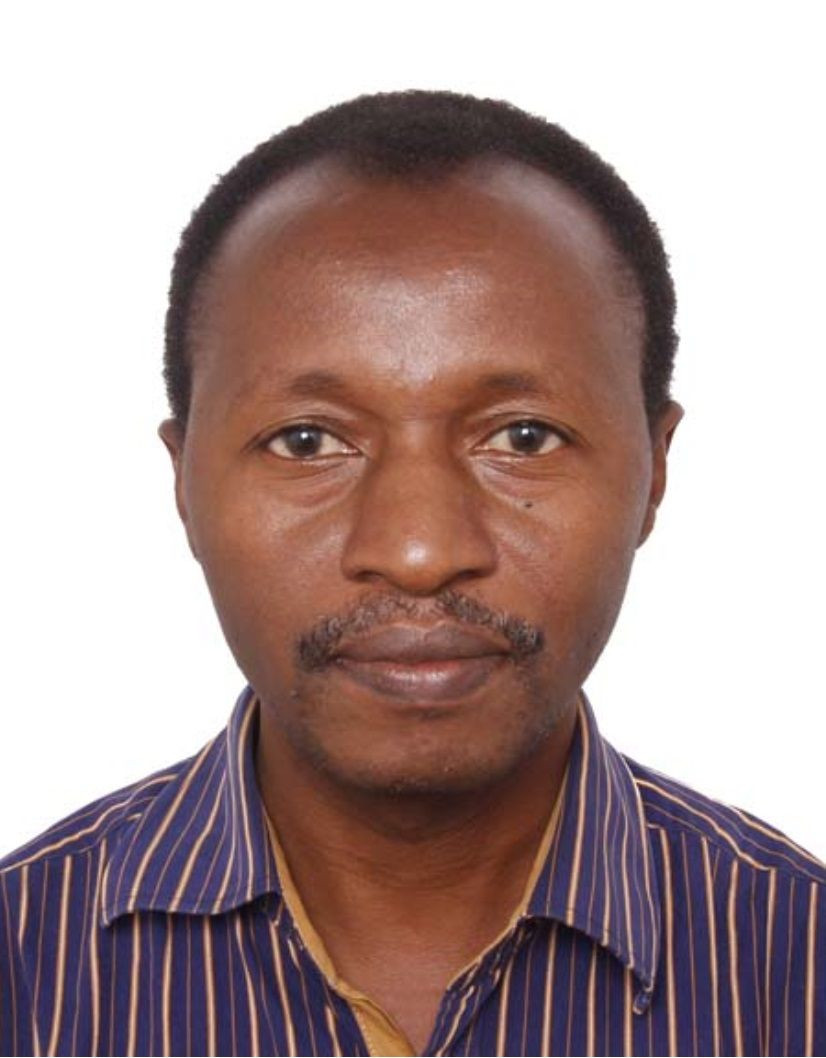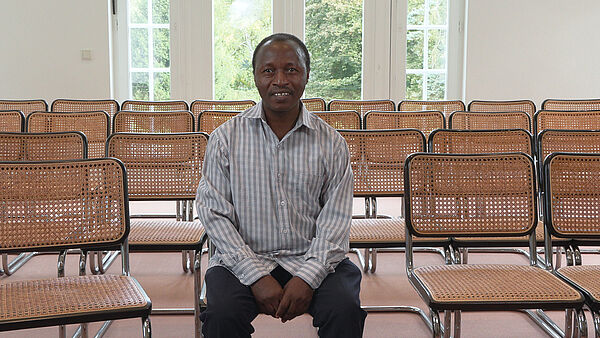
Imani Sanga, PhD
Professor of Music
University of Dar es Salaam
Born in 1972 in Makete, Tanzania
BA in Music and MA in Development Studies from the University of Dar es Salaam, PhD in Music from the University of KwaZulu-Natal
Project
Sonic Letters, Decolonial Acts: Musical Figures, Swahili Literature, and Anti-imperialist Struggles in Tanzania
Music is a ubiquitous feature of Tanzanian Swahili literary texts ranging from novels and poems to plays and biographies. This book project examines how Swahili literary texts use musical events, musical instruments, genres, musicians, and sounds as semiotic resources to enact people’s identities and relations and to critique various forms of imperial domination. Using the concept of musical figures, the project examines how these Swahili texts use sonic resources to represent various decolonial struggles against imperial forces that Tanzania has encountered throughout its history including the Arab slave trade and the European colonization of East Africa, nationalistic struggles and nation-building efforts, and neoliberal policies and practices.To unpack the relation between music, decolonial struggles, and literary imaginations in the Swahili literary texts, this project explores the multiple histories and meanings the musical figures have accumulated in their music-cultural contexts, such as religious rituals, traditional healing practices, initiation rites, or night club music-dance performances. Then, it demonstrates how these cultural histories and meanings of the musical figures are evoked and used to shape the representation of imperial domination and the decolonial struggles that Tanzanians have carried out over the years and to challenge various forms of imperial domination, as well as the colonial and racist mentality that sustains it.
Succinctly, the book discusses innovative ways through which Swahili literary texts deploy musical figures to represent and critique social relations of domination and inequality. It shows how these texts exploit Tanzanian music cultural contexts and creatively use them to shape musical figures and the imaginary worlds of literary text. It analyses the complex interweaving and interdependence of media and social life experiences in the texts analysed. It shows how, on the one hand, the imagination of musical phenomena (performance, song, musical style, or sounds) in literary texts is made possible through literary language and literary devices used to describe these musical phenomena and how, on the other hand, these musical phenomena themselves function as part of the web of figural devices that make up the literary language used to represent social life.
Recommended Reading
Sanga, Imani (2016). “The Archiving of Siti Binti Saad and Her Engagement with the Music Industry in Shaaban Robert’s Wasifu wa Siti Binti Saad.” Eastern African Literary and Cultural Studies 2 (1–2): 34–44. https://doi.org/10.1080/23277408.2016.1158550.
– (2019). “Sonic Figures of Heroism and the 1891 Hehe–German War in Mulokozi’s Novel Ngome ya Mianzi.” Journal of Postcolonial Writing 55 (5): 698–709. https://doi.org/10.1080/17449855.2019.1619618.
– (2020). “Musical Figures of Enslavement and Resistance in Semzaba’s Kiswahili Play Tendehogo.” African Studies 79 (3): 323–338. https://doi.org/10.1080/00020184.2020.1825927.
Colloquium, 29.04.2025
Tanzanian Swahili Letters and the Musical Figuring of Anti-imperial Struggles
A number of Tanzanian Swahili literary texts are products of fascinating interactions between literary, historical, and musical imaginations. My book project at Wiko focusses on the Swahili literary texts that use musical events, musical instruments, genres, musicians, and sounds as narrative and semiotic devices to represent various forms of imperial conquest and resistance struggles. The historical events that these texts engage with include the Indian Ocean/East African slave trade (c. 18th and 19th centuries), European colonization of East Africa (19th century), the struggle for independence and nation-building efforts (late 1950s and 1960s), and Tanzania’s adoption of neoliberal policies and its experiences with the privatization and commodification of education and health services (1980s and 1990s).
In this presentation, I specifically focus on passages from three texts in which musical figures are used to represent slavery, colonization, and resistance. First, the play “Tendehogo” by Edwin Semzaba details the experiences of African slave captives being driven by an Arab slave trader away from their homeland in the interior to the slave market at the coast. The Arab enslaver in this play teaches and compels his chained captives to sing a song about the superiority of Arabia and its civilization. To resist this physical and mental enslavement, the African slave captives initiate their revolt by singing a song about their homeland and its people. Second, the novel “Ngome ya Mianzi” by Mugyabuso Mulokozi narrates the battle between the Hehe and the German colonizing troops in 1891. The Hehe soldiers in the novel use specific drum patterns to communicate war messages among themselves and thus successfully ambush and defeat the invading troops. Finally, the novel “Kasri ya Mwinyi Fuad” by Shafi Adam Shafi narrates events leading to the 1964 Zanzibari revolution and tells how revolutionists used a specific “ngoma” (dance) event as an opportunity and a means to organize and successfully undertake the revolution.
In all these cases, I examine how musical figures, drawn from Tanzanian music-cultural practices, are appropriated, recontextualized, and deployed in literary imaginary worlds as semiotic devices through which acts of domination and resistance are performed. I discuss the import that these musical figures bring to the meanings and aesthetics of the texts.
Publications from the Fellow Library
Sanga, Imani (London [u.a.], 2020)
Musical figures of enslavement and resistance in Semzaba’s Kiswahili play Tendehogo
Sanga, Imani ([Pretoria], 2020)
Musical figuring of Dar es Salaam urban marginality in Mbogo's Swahili novel Watoto wa Maman'tilie
Sanga, Imani (London [u.a.], 2020)
Musical figures of enslavement and resistance in Semzaba’s Kiswahili play Tendehogo
Sanga, Imani (Abingdon, Oxfordshire, 2019)
Sonic figures of heroism and the 1891 Hehe–German war in Mulokozi’s novel Ngome ya Mianzi
